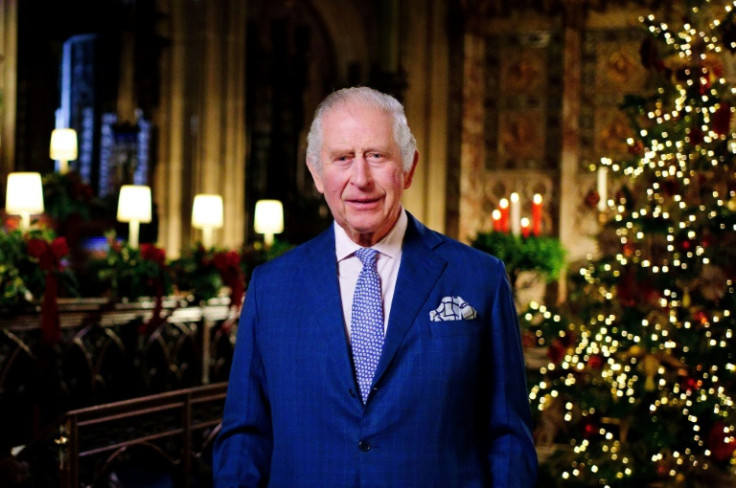King Charles III will use cruelty-free holy anointing oil at coronation
The oil will no longer have waxy substances from the intestines of sperm whales.

The "chrism oil" that will be used during King Charles III's coronation has been modified out of respect for animals and the environment.
The oil has been reformulated and will no longer have waxy substances from the intestines of sperm whales. It will also not have secretions from the glands of small mammals like civets. According to the BBC, instead, the mixture includes olive oil scented with a mix of essential oils, rose, cinnamon, jasmine, orange blossom, neroli and benzoin, and sesame.
Some of the olives used for the oil also hold significance for King Charles III because the olives are from the Mount of Olive at the Monastery of Mary Magdalene in Jerusalem, where the monarch's grandmother, Princess Alice, is buried.
The Patriarch of Jerusalem and the Anglican Archbishop in Jerusalem consecrated the royal oil at the Church of the Holy Sepulchre, where it is believed Jesus Christ died and was buried.
The Archbishop of Canterbury Justin Welby will bless the monarch with the anointing oil on his chest, hands, and head. Speaking about the new formulation, Welby said, "This demonstrates the deep historic link between the coronation, the Bible, and the Holy Land. From ancient kings through to the present day, monarchs have been anointed with oil from this sacred place."
Meanwhile, royal commentator and broadcaster Jonathan Sacerdoti noted that King Charles III is "known to be someone who cares deeply for the environment and nature, so it is no surprise that the oil used for his anointing has been prepared with maximum respect for animals and nature."
He told Fox News Digital, "The palace has said the oil for the king's coronation is based on a formula that has been used for hundreds of years. However, the recipe has also been modernised to ensure that no animals were harmed to create it. Previous versions contained civet oil, which is commonly used in perfumery. [It] has been left out of the recipe this time in respect of animal cruelty concerns."
Sacerdoti added that "another animal product that has also been left" of the anointing oil is ambergris, which is a "solid waxy substance" found in the intestine of the sperm whale. He pointed out that this substance is widely used as a spice or medicine in Eastern cultures, while the west uses it to stabilise the scent of perfumes.
"The creation of the oil was carried out at the Church of the Holy Sepulchre, believed by Christians to be Jesus' burial place, and it was blessed in a ceremony led by the Patriarch of Jerusalem, Theophilos III, as well as by Anglican archbishop Hosam Naoum," he said.
Royal expert Hilary Fordwich added that the anointing oil has always remained sacred during coronations. It is "stored in a bottle and traditionally held in great secrecy by the Dean of Westminster at Westminster Abbey." She explained, "The anointing of a new monarch, the act of consecration, is so sacred it takes place privately under a canopy, transforming the moment into a deeply personal experience between only the sovereign and God."
Meanwhile, royal biographer Christopher Andersen called the decision to modify the anointing oil a "predictably woke gesture." He also described the anointing of King Charles III with the oil as a crucial element of the coronation "rooted in the ancient and deeply-held spiritual conviction that kings and queens have been chosen by God. This is doubly true in Great Britain, where Charles will rule not only as king but as head of the Church of England."
He warned that "some might view this sacrosanct aspect of the ceremony as a little disingenuous since Charles now becomes the first divorced man ever crowned king — and alongside the equally-divorced woman he cheated on his wife with, no less." King Charles III will be crowned alongside Queen Consort Camilla in London's Westminster Abbey on May 6.
© Copyright IBTimes 2024. All rights reserved.






